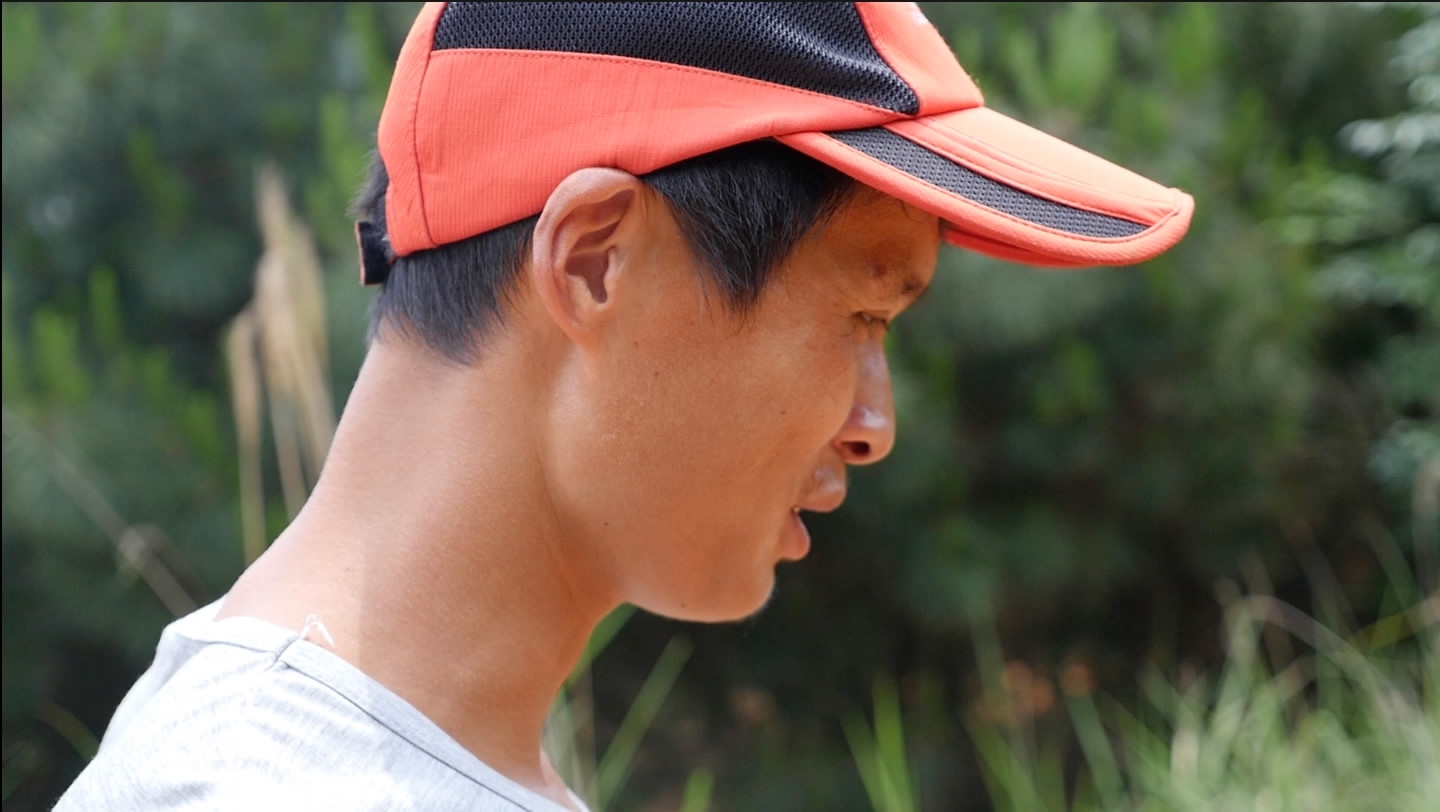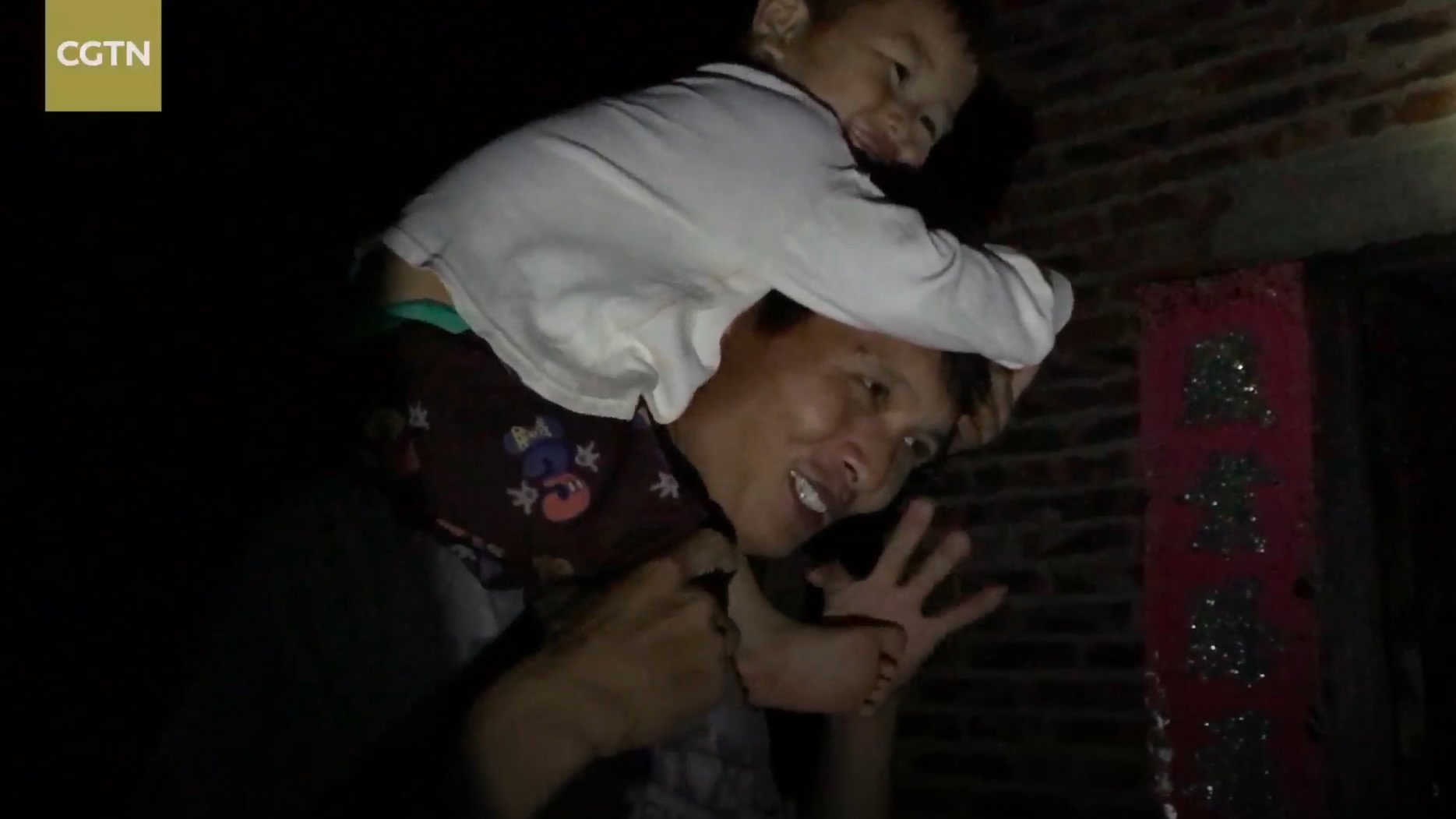
China
20:54, 20-May-2017
Poverty Alleviation in China: A young man sticking with the land

By CGTN's Jin Zixiong
Two years ago, poverty-stricken Huang Peng decided to go all in on a bet.
Inspired by the local government’s determination to alleviate poverty by supporting promising agricultural industries, he replaced the mature tea oil trees on his land in Xinben village with one hectare of slow-growing fruit trees. Long term, they should be more profitable.
Journalists flocked to the 31-year-old’s farm after getting wind of the ambitious plan, and the young man was sure his future would be bright.
“I am confident to say that my fruit trees are the best-managed in our village,” said the devoted Huang, who spends days and nights on the farm, often bringing his wife and youngest son with him. Most of the young villagers have sought work in China’s big cities. Huang’s choice to stick with the land is unusual.
“I believe that to start one’s own business is more promising than working as an employee. I cultivate my own land. No one else could care about it more than I do,” he asserted.
Huang’s farm, located deep inside a mountainous area at the rear of Xinben village on the border of south China’s Hunan and Guangdong provinces, was virgin land just seven years ago. His father rented the plot and decided to build a life there. The family has endured hard labor over the years, rooting out weeds and clearing a space for cultivation. Even now, neither electricity nor tap water is available there.
At the end of 2015, a poverty alleviation team dispatched to Xinben village agreed to provide support to Huang’s farm via a charity fund and infrastructure construction plan -- on certain conditions. The farm would become part of a new production cooperative, consisting of six self-managed local farms. Huang would also have to plant fruit trees deemed favorable on the market. He agreed to the requirements, and dug up an area of established tea oil trees on his land.
Journalists and visitors soon came to look, taking pictures and hailing his case as a successful model of the poverty alleviation project. At that time he believed that he would receive strong financial support – and be connected to electricity and water supplies. However, the aid wasn’t as generous as he expected.
The poverty alleviation team provided the production cooperative with a total development fund of 20,000 yuan (3,000 US dollars), as well as saplings, which the six farms divided in proportion to their share of land area. But the support does not cover the expense of maintaining the fruit trees, which requires intensive labor and capital. And the plan to supply electricity and water has been repeatedly delayed, Huang said. As larger cooperatives are backed by an influx of investors from out of the town, he feels the poverty alleviation team is losing interest in them.

A financial crisis has struck Huang. Not a penny is left. He has dug out every last coin to buy fertilizer and pesticide. As part of the country’s poverty alleviation policy, commercial banks are required to supply every officially registered poverty-stricken individual with an interest free loan of 50,000 yuan (7,500 US dollars). However, that money must go into several large companies rated as credible, in exchange for a share of dividend. In Huang’s case, it goes into a local brickyard. And the poverty-stricken who have used their quota of interest free loans are deprived of chances to receive other commercial financing.
Caught in a dilemma, Huang is no longer sure whether he made the right choice. His wife said that if nobody offers to lend the family money in the next two years, one of them will have to earn a living away from home as a migrant worker. “Huang’s mother is too sick to do housework. If I left, no one would take care of him. If he left, the land will definitely be abandoned,” she said.
Related Stories: China’s poverty police ensuring charitable funds get where they’re needed

SITEMAP
Copyright © 2018 CGTN. Beijing ICP prepared NO.16065310-3
Copyright © 2018 CGTN. Beijing ICP prepared NO.16065310-3